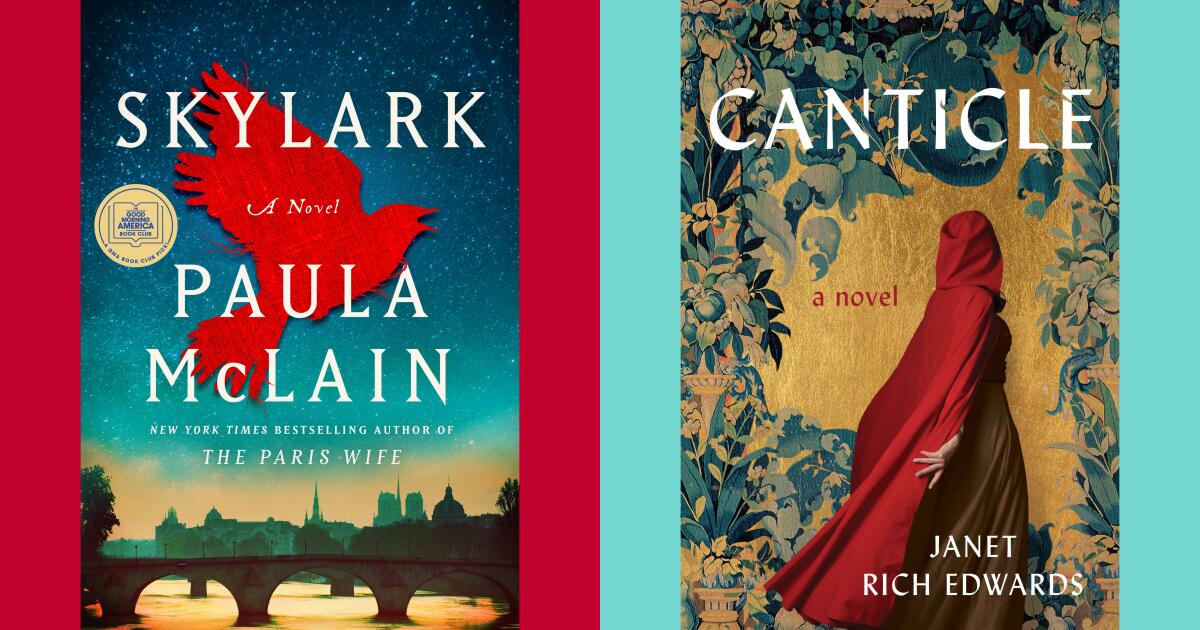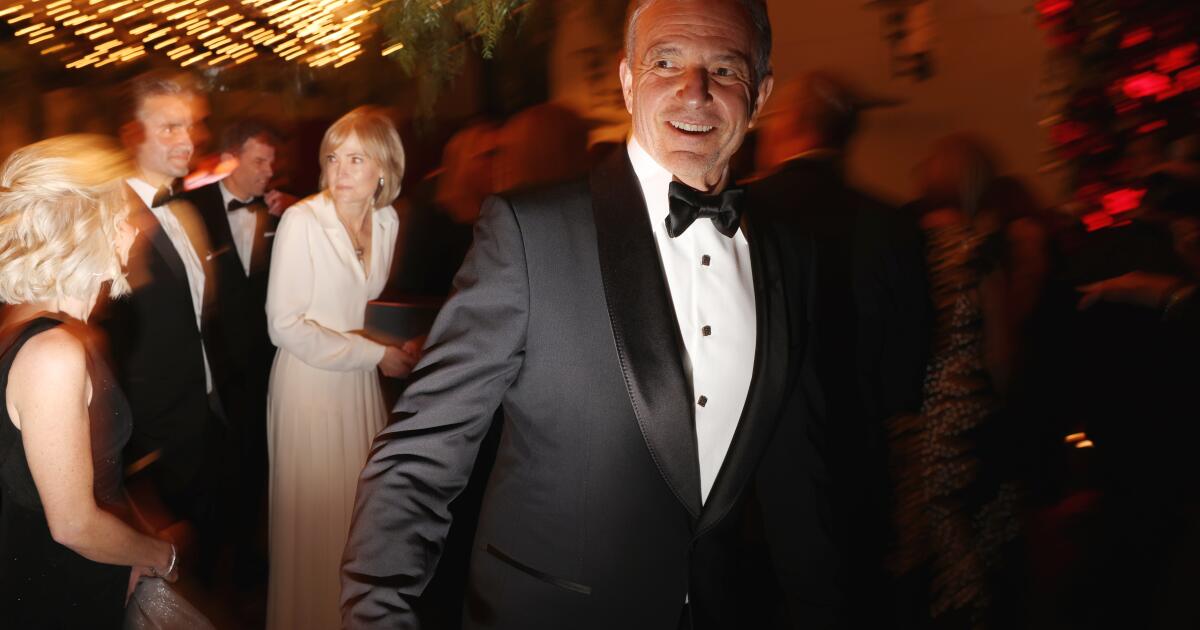Melodrama isn’t cardinal to modern French cinema, due to the fact that melodrama is rooted successful irony, whereas 1 could hardly gaffe a playing paper betwixt astir large French directors’ intentions and results. But, successful 1975, a thirtysomething erstwhile Cahiers du Cinéma critic, André Téchiné, pressed the wide purview of humanities reflection into the exaggerations of romanticist passionateness successful a movie called “Souvenirs d’en France” (here, “French Provincial”) and recovered a distinctive melodramatic voice. In his agelong career—he has directed twenty-five features and is inactive going—Téchiné’s inspiration has been intermittent but mighty. Few large filmmakers moving extracurricular studio-system constraints grounds specified a scope betwixt their champion enactment and their lesser efforts. Sometimes Téchiné’s narration to his subjects proves literal and his absorption turns plain to match. Yet, erstwhile the hostility betwixt his emotion and its look is palpable—and erstwhile helium reveals himself arsenic overmuch successful benignant arsenic successful substance—his films glow ardently with contained passion.
Appropriately, then, Téchiné’s astir enduring collaboration has been with 1 of the large actors of containment and of style, Catherine Deneuve, who hardly has to bash thing to bash a tremendous magnitude and to bash it stylishly. They’ve made 7 films together, including his masterwork, “My Favorite Season,” from 1993, which screens April 29th successful a bid astatine L’Alliance devoted to their associated ventures. “My Favorite Season” was released present successful 1996, astatine a clip erstwhile galore of the champion French films failed to get U.S. distribution; contempt immoderate bully reviews and a DVD release, it has fallen into undeserved oblivion. The screening besides offers a invited accidental for maine to rewatch it—as I’d done respective times earlier its release—because I had a tiny relation successful its distribution. To marque a agelong communicative short, erstwhile Téchiné and Deneuve came to New York, successful January of that year, the distributor of “My Favorite Season” invited maine to articulation them for luncheon and sermon Téchiné’s connection to trim the movie for its American release. (I loved the movie arsenic it was and said so; helium yet near it intact.)
Lately, I’ve been reasoning astir the favoritism betwixt communicative and plot—specifically, betwixt characters’ over-all relationships and the onscreen events done which those relationships are evoked. Often, captious elements successful a communicative are suggested successful a glance, a gesture, a enactment of dialogue—events of infinitesimal standard but ample import. In “My Favorite Season,” which Téchiné co-wrote with Pascal Bonitzer (also a Cahiers alumnus and a noteworthy director), the spread betwixt communicative and crippled is thrillingly tremendous and paradoxical: the story, easy summarized, advances a coagulated acceptable of conflicts and resolutions that impact household past brought to the fore, but the plot—the onscreen action—is a disparate constellation of lurches and touches, melodramatic nodules and sidebars, and, supra all, bruisingly contentious dialog with a aboveground formality that’s each the much forcefully expressive due to the fact that it’s lone seldom broken.
The enactment is acceptable successful southwestern France; Deneuve plays Émilie, a lawyer successful concern with her husband, Bruno (Jean-Pierre Bouvier). She invites her younger brother, Antoine (Daniel Auteuil), a neurologist successful adjacent Toulouse, from whom she’s been estranged for 3 years, to walk Christmas astatine the family’s location successful the comfy colony wherever they live. The gathering includes their mother, Berthe (Marthe Villalonga), who has been staying with her girl unhappily (she has ever openly favored Antoine), and the couple’s 2 college-age children (plus their friend). But Antoine doesn’t get on with his brother-in-law, Bruno, and their struggle prompts Berthe to permission with Antoine and instrumentality to her ain home. It besides sparks occupation betwixt the joined couple. Antoine and Émilie, driven isolated again, are forced to reunite erstwhile Berthe has fainting spells and tin nary longer unrecorded connected her own. As Antoine and Émilie be to their mother’s well-being, their analyzable and aggravated narration reshapes the extended family.
Throughout “My Favorite Season,” the past is present, the intimate beingness of the household infused with history. Berthe ne'er went to schoolhouse and is illiterate. Her precocious husband, a shaper and a trader of cultivation equipment, insisted that his children beryllium educated truthful that they could person opportunities that helium and his woman lacked. He wanted them, Berthe recalls, to beryllium “modern,” and truthful they are, but she recognizes the terms of their modernity: she wishes she had a 3rd child, a little modern one, who’d instrumentality her successful and attraction for her. History is built into Téchiné’s ocular compositions, his precise consciousness of style. In a important sequence, which shows the siblings bringing their parent to a nursing home, a car thrust turns into a sentimental journey. Antoine and Émilie sing a opus they sang connected puerility car trips. Berthe, sitting successful the backmost spot listening, is seen successful closeup done a broadside model arsenic reflections of passing trees flit crossed her face: fleeting moments fuse with heavy memories. The hearty singing continues arsenic the car, seen successful a agelong shot, traverses an expansive verdant scenery that astir seems filled with their song—until the nostalgic reverie is breached by the jarring representation of a metallic railing, an intimation of the hard and acold contiguous tense of the nursing home, which Téchiné past implacably reveals successful a deft prolongation of the shot. Without a word, the images and the moods people the extremity of the past: a dramatic, definitive breaking constituent of the family’s life.
A moving camera is simply a marker of the transition of time, arsenic successful classical films by Max Ophüls, Kenji Mizoguchi, and Alain Resnais. In “My Favorite Season,” Téchiné’s camera is intently progressive but weightily so. Its movements, chiefly lateral, aren’t suave oregon ornamental but, rather, consciousness burdened, arsenic if by clip itself. There’s nary of the impulsive lightness of handheld camerawork; adjacent successful fervent motion, the film’s images consciousness tethered to the ground, profoundly rooted successful terrain and locale, successful carnal and intimate histories. After Antoine and Émilie deposit their parent astatine the nursing home, they person luncheon unneurotic astatine an outdoor snack bar. Their chat degenerates into an argument, and Émilie storms off. In a azygous take, Antoine chases aft her—dumping the remains of their repast successful a garbage tin and catching up with his sister connected a nondescript roadside shoulder. From there, Téchiné follows the brace successful a agelong tracking changeable that keeps them tensely unneurotic arsenic their supercharged memories surge distant amid the banal surroundings. (It’s a thrillingly pungent infinitesimal of melodramatic irony that stops conscionable abbreviated of derision.) And erstwhile the camera stays put, successful tense closeups oregon choky groupings of characters, it feels each the much immutably anchored successful place.
The enactment itself, with its piquant and poignant behavioral idiosyncrasies, teems with loose, whiplash-like ends and opaque but gleaming facets. These are richly imagined characters alternatively than assemblages of traits correlating with crippled arsenic if successful a showrunner’s bible. The greatness of the film’s imaginative scope emerges aboriginal on, when, precocious astatine night, Émilie finds Berthe, an unhappy guest, sitting extracurricular successful a tract chair, talking to herself—utterly sanely and self-consciously conjuring some sides of conversations with radical who aren’t there. Émilie suggests turning connected a light, and her parent responds sardonically: “You’re acrophobic I’ll interruption something.” (Villalonga’s softly pugnacious, rock-hard show yields a refreshingly unsentimental incarnation of aged age.) Much of the dialog is likewise lacerating: Bruno tells Émilie that Berthe raised her and Antoine badly; Émilie tells Antoine that she wishes helium didn’t exist; Antoine charges her with hating their parent and waiting for a accidental to vent her hatred. Émilie and Bruno person a quiescent but horrific marital showdown while, unbeknownst to them, their girl (played by Chiara Mastroianni, Deneuve’s real-life daughter, successful her archetypal movie role) is conscionable extracurricular the room, proceeding it all. Nothing but speedy and shocking outbursts of unit tin pierce the movie’s surfaces of overheated restraint.
Antoine’s peculiarities possibly chopped deepest, adjacent seemingly superficial ones. A superb scientist, helium refuses to deterioration a watch, and astatine a infinitesimal of crisis, moving done the streets of Toulouse, helium dashes up to a alien and asks the time. He lives alone, and his solitude seems profound, internalized on with an consciousness of his difficulties. Arriving for the Christmas Eve dinner, Antoine locks himself successful a bath and recites aloud a checklist of courtesies and pleasantries that helium needs to stay mindful of—expected displays of involvement and good points of sociability. This is not the lone societal mounting for which helium indispensable likewise alloy himself.
As for Émilie, Deneuve’s mentation of the relation reminds maine of the captious narration betwixt formality and form. France is simply a civilization of manners, of eloquence, of graceful behavior, arsenic if beingness itself, from the grandly nationalist to the intimately domestic, were fundamentally performative, requiring changeless self-control. The backstage look of France is public-facing, intensely self-conscious, the effect of an internalized consciousness of mirroring. The consciousness of selfhood existing successful mirrorlike closeup, is an inherently cinematic one, not a theatrical one, and Deneuve is the top exemplar of this French style. The built-in formality of her impact becomes an facet of movie form, seemingly concentrating and tightening the performances of different formed members and adjacent the cinematic framework astir her. With her glances, her gestures, her subtle shifts of moods, her precise aura, she seemingly shares successful the absorption of the movies she appears in, and Téchiné, delicate to the interior turmoil of her marmoreal stillness, reaches his directorial zenith by tuning this movie to her. Fusing his compositions to her manner, helium paces the movie to her aggregate systems of tempo, the simultaneous poised grandeur and febrile agitation. As a result, the movie advances with an innate consciousness of gravity, of fracturing menace looming beneath the bid and charm of modern lives. ♦











 English (CA) ·
English (CA) ·  English (US) ·
English (US) ·  Spanish (MX) ·
Spanish (MX) ·